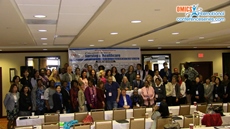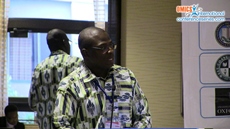
Brahima Amara Diallo
Bayreuth International Graduate School of African Studies, Germany
Title: Problematic of providing better healthcare to childbearing mothers and infants: A case study in a Fulbe community in Mali
Biography
Biography: Brahima Amara Diallo
Abstract
This work explores women’s reproductive attitudes and the knowledge transaction among actors involved in the process of taking care of expectant mothers and babies in a Fulbe community in Mali. It draws on an 11 months fi eldwork using observation and semi-structured interview techniques. Th e work demonstrates the challenges of local health centers providing health services and the trajectories of mothers and infants looking for remedies for their health needs. In Diondiori commune, issues related to the pregnancy, childbirth and babies’ healthcare are surrounded by social and cultural representations. Local people have their own image of an ideal child bearing. A woman should demonstrate her bravery throughout the gestation and at the delivery. Apart from primiparas who are mostly entrusted to their own mother, the other expectant mothers should deal with their pregnancy and childbirth alone. In order to bridge the gap between the people and the health centers, local health authorities undertake some initiatives. Community health workers are recruited to sensitize pregnant women to come to health centers for antenatal visits and for childbirths. Consecutively, health workers regularly visit villages for preventive vaccine to infants against illnesses. Th ese initiatives sponsored by Médecins du Monde (NGO) have been assessed by health professionals as being a success. And through the one year intervention of the NGO, the local health system was reinvigorated although there is still a dilemma to health workers regarding the sustainability of off ering satisfactory health services to women and children in the commune.



